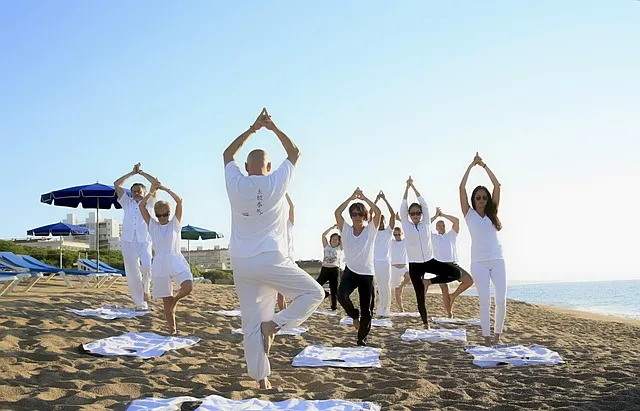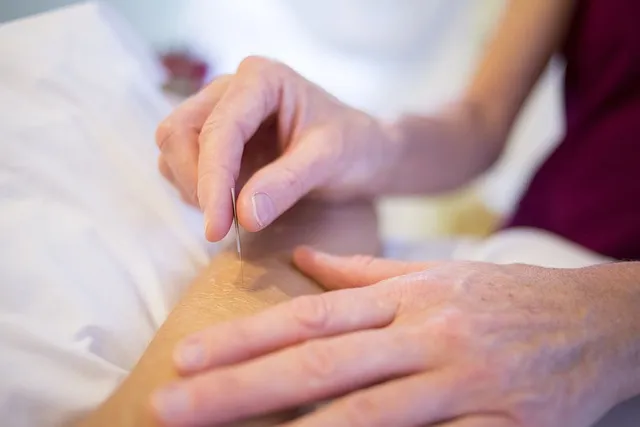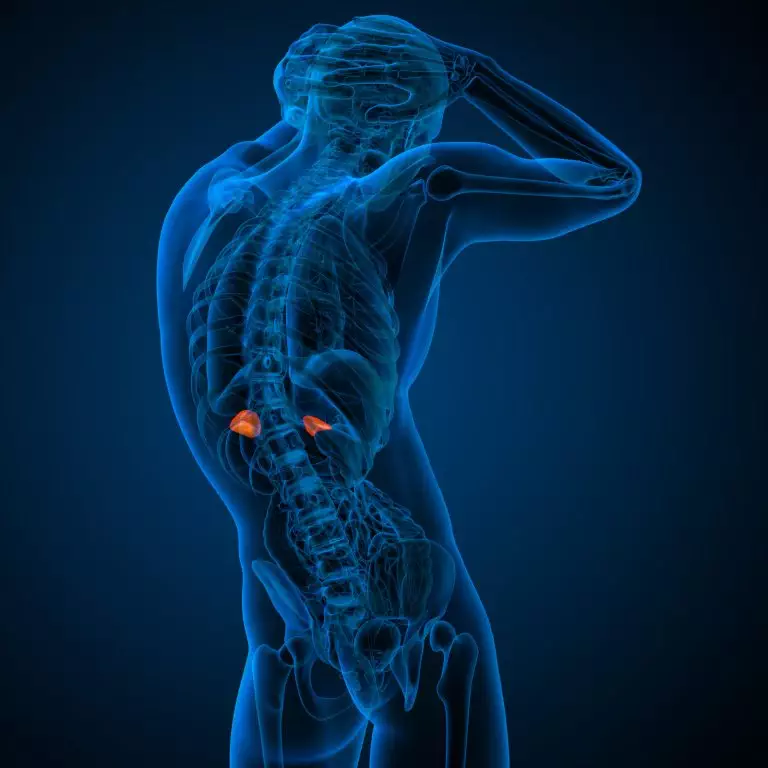Unlocking the Power of Holistic Healing: Mind, Body, and Spirit
Key Ideas
- Holistic medicine isn’t a fad—it looks at the whole person, providing physical, mental, and spiritual care. It integrates the best of conventional and alternative therapies to help restore optimal balance and wellness.
- Practitioners focus on determining and addressing the root causes of health issues. They accomplish this by honoring the uniqueness of each patient’s lived experiences and cultural background.
- Personalization, as always, is the name of the holistic care game. Treatment plans are tailored to each person’s unique needs, preferences, and health goals, enabling a highly patient-centered approach.
- Value evidence-based practices – Holistic medicine promotes informed decision making by drawing on the wisdom of traditional practices and current scientific evidence.
- Fostering strong social ties and supportive environments is essential to healing. This drives home the idea that connection and collaboration, rather than isolation, are the key ingredients for achieving wellness success.
- Maintain a healthy lifestyle with good nutrition and regular physical activity. Focus on self-care and mindfulness to build a strong foundation for achieving overall well-being.
- Whitfield, Clara (Author)
- English (Publication Language)
- 314 Pages – 11/30/2024 (Publication Date) – Independently published (Publisher)
Last update on 2025-10-31 / Affiliate links / Images from Amazon Product Advertising API
Holistic medicine addresses the entire individual. It focuses on the whole person — the mind, body, and spirit — rather than just the disease or symptoms.
In this holistic field, doctors and therapists have adopted a wide range of treatments, including herbal remedies and massage.
They include the use of talk therapy, dietary interventions, and regular medical treatment. Patients choose holistic care to reduce stress, develop healthy habits, and enhance their overall well-being.
Many of these clinics incorporate adjuncts, including yoga, acupuncture, or mindfulness, to meet the individual’s needs.
These practices and techniques are most effective when combined with evidence-based, allopathic medicine and treatments. Let’s take a look at the actual benefits and risks of holistic medicine.
It explains how holistic medicine works, typical holistic therapies, and what to look for when deciding on this form of care.
What Exactly Is Holistic Medicine?

Holistic medicine looks at the whole person—body, mind, and spirit—not just individual symptoms or illness.
This philosophy combines the best of traditional medicine with various other therapeutic modalities to help individuals achieve and maintain optimal health.
At its core, holistic health honors and encourages the flow of life force energy. In Traditional Chinese Medicine, this energy is referred to as Qi, and in Ayurveda as prana. The overall intention is to achieve balance in every aspect of life.
1. More Than Just Symptoms
It means that holistic medicine seeks out the underlying cause of health problems, rather than simply addressing what is painful or out of balance.
Practitioners will be interested in how your feelings, stress level, lifestyle choices, and spiritual perspective contribute to your state of health.
They might give hours to understanding your routine, your family, or what you’re thinking about. This wide lens enables practitioners to see connections that may be overlooked when examining the physical body alone.
Individuals are encouraged to take responsibility for their health in advance of disease rather than in response to disease.
2. The Whole You: Mind, Body, Spirit
Holistic care views your mind, body, and spirit as interconnected. For instance, stress might manifest as headaches, or grief might make you feel fatigued.
Mindfulness, yoga, and deep breathing play a significant role in fostering emotional and spiritual well-being.
As it turns out, these practices are suitable for your body too!
3. True Wellness: The Ultimate Goal
Wellness, in this context, refers to more than the absence of illness; it embodies a holistic view of life that includes a good quality of life, a sense of meaning and direction, and healthy connections with others.
Personal growth and learning, integral to holistic health practices, are inevitable.
4. How It Stands Apart
Holistic medicine emphasizes a comprehensive view of the entire person, integrating both Eastern and Western approaches, including natural therapies and pharmaceuticals, while prioritizing prevention and long-term health outcomes.
5. Is It Only “Natural” Remedies?
Holistic care incorporates natural therapies, such as herbs, appropriate nutrition, and acupuncture, while also utilizing surgery or Western medicine when necessary. Today’s best holistic healthcare practitioners combine these approaches for optimal results.
6. A Peek into Its History
Holistic medicine isn’t new. Ayurveda, originating from India, and Traditional Chinese Medicine (TCM) are two major systems of medicine.
Over time, holistic medicine has gained more widespread acceptance among doctors and patients alike for its benefits.
It takes on a greater role in contemporary medicine.
- Used Book in Good Condition
- Dale, Cyndi (Author)
- English (Publication Language)
- 374 Pages – 08/01/2013 (Publication Date) – Sounds True (Publisher)
Last update on 2025-10-31 / Affiliate links / Images from Amazon Product Advertising API
The Heart of Holistic Philosophy

Holistic medicine focuses on treating the whole person, not just their specific condition. At its core, this perspective is holistic, encompassing care for the body, mind, and spirit.
The guiding principle of holistic philosophy is that health is defined as harmony and equilibrium in all aspects of life.
This model prioritizes prevention, focusing on factors that promote health, rather than just treating disease once it occurs. Unconditional love and authentic support go a long way in determining how quickly people heal.
Holistic care involves treating the whole person, rather than just one aspect.
Patients are viewed as active collaborators, not merely passive recipients. They are encouraged to be active participants in their health and partner with their care team.
You’re More Than a Disease
Holistic medicine teaches that you are much more than your diagnosis or disease state, or even your collection of symptoms. It challenges physicians to look beyond the condition to the individual.
A holistic approach acknowledges that it is often not the case, for instance, when two patients with identical headaches receive vastly different care.
One person may require stress management, while another needs an intervention to improve sleep hygiene.
We believe this approach honors every individual’s narrative, history, and desires. It examines physical, social, and spiritual environments beyond the laboratory values.
Unlocking Your Inner Healing
To many practitioners of holistic medicine, that view seems ignorant, at best — people, they believe, have an innate ability to heal.
Techniques such as yoga, breathwork, and meditation are powerful tools that enable individuals to tap into their innate abilities.
A culture of holistic philosophy emphasizes that mindset makes a difference. Various studies have reported that belief and hope are powerful forces that can accelerate the healing process.
Creating resilience is the heart of holistic care. Implementing relatively simple changes, such as practicing mindful eating or spending more time in nature, can have a significant impact.
Finding Health’s True Source
Holistic philosophy is interested in identifying root causes rather than temporary band-aids. Instead, doctors should consider a patient’s lifestyle, stress, or environment before choosing an appropriate treatment.
That might include acupuncture or dietary shifts, not just pharmaceuticals. Addressing the root causes is better for long-term health, not just temporary comfort.
Why Support Matters Greatly
Social and medical support create an environment that fosters healing. Cultivating strong relationships with caregivers and loved ones can significantly enhance one’s overall health.
Stronger community connections and greater social support are associated with improved healing.
Holistic care recognizes the importance of these connections and empowers individuals to build a robust and nurturing network of support.
Diverse Paths to Holistic Wellness

Holistic medicine encompasses a diverse range of healing modalities. It approaches the mind, body, and spirit as integrated aspects of health, rather than separate entities.
This type of approach is inclusive of diverse backgrounds and health needs.
Some individuals and families may prefer to integrate holistic care with conventional medicine, while others may prefer a more standardized treatment plan. The overarching aim is to tailor healthcare to the individual level.
Common Healing Techniques
- Acupuncture: Uses fine needles at key points to ease pain and boost energy flow.
- Herbal medicine: Applies plant-based remedies to support healing and prevent illness.
- Yoga: Blends movement, breath, and focus for strength and calm.
- Massage therapy: Works on muscles and soft tissue to provide relief and improve blood flow.
- Body movement therapy: Includes Tai Chi and Qigong, which help balance and provide stress relief.
- Naturopathic medicine: Focuses on prevention and least-invasive treatments.
- Chiropractic medicine: Adjusts the spine and joints to help the entire body function optimally.
Each of these can contribute to increased wellness.
For instance, massage can help alleviate stress and pain, while yoga can improve sleep and mood.
As in other forms of medicine, using multiple methods usually yields the best results. It’s prudent to understand each choice before diving in.
Lifestyle as Powerful Medicine
We know that daily habits are what determine our health. Not just what’s on your plate; eating balanced meals, staying active, and getting enough sleep are all crucially important.
Minor adjustments, such as increasing your daily steps or establishing an evening routine, can have a significant impact.
Self-care—whether that’s taking time to relax, breathe deeply, or unplug—builds resilience.
Mind-Body Connection in Practice
Because emotions and mental processes are what influence the body, pragmatic practices such as meditation and mindfulness are effective in reducing stress.
With reduced stress comes less physical tension and pain, improved concentration, and sharper thinking. Mind-body practices don’t have to be complicated; they can begin with just taking a moment to focus on slow, deep breaths.
Social Ties: A Healing Force
Social Connections: A Powerful Remedy. Having robust connections to friends and family is proven to support our bodies’ healing processes.
When it comes to social wellness, support networks can help calm stress and improve overall mood. Whether through joining a club or organization or volunteering and helping to support their community, these acts contribute to a feeling of connectedness.
How Treatments Are Personalized
Holistic care is not a cookie-cutter approach. Practitioners take time to listen to each person’s story, aiming for a deep understanding of their goals.
Plans can be an eclectic blend of therapies and evolve. Free discussion between patients and providers determines the optimal course.
- Montes, Rosalinda (Author)
- English (Publication Language)
- 216 Pages – 11/03/2024 (Publication Date) – Independently published (Publisher)
Last update on 2025-10-31 / Affiliate links / Images from Amazon Product Advertising API
Who Are Holistic Health Experts?
Holistic health experts have a wide range of experiences. They each possess differing skills and training to heal individuals and communities, enabling people to feel their best.
These experts focus on the whole person—body, mind, and environment—rather than solely addressing acute symptoms.
Many are required to hold advanced degrees in their respective fields and are trained in a systems approach to both prevention and care.
Integrative Doctors: Bridging Worlds
Integrative doctors bridge these worlds by pairing conventional medicine with holistic therapies.
With a focus on underlying causes, they collaborate with other healthcare professionals to create individualized care plans that address the whole person, not just the disease.
Their training enables them to utilize laboratory testing, prescribe medications, and incorporate nutrition and stress management into patient care.
This combination offers patients a more comprehensive approach, frequently leading to improved long-term outcomes.
Collaboration is everything—they frequently collaborate with other medical professionals, therapists, and holistic providers to achieve the best results.
Naturopaths: Harnessing Nature
Naturopathic doctors—or NDs—rely on natural remedies and an emphasis on patient education to help people learn to take care of themselves.
By the end of their four years of naturopathic medical school, they learn to master nutrition, herbal medicine, physical medicine, and more.
They support patients in developing positive habits and preventing illness with nutrition, physical activity, and stress management.
Common treatments involve the use of herbal supplements and lifestyle changes.

Osteopaths: The Body’s Wisdom
Osteopathic physicians view the body as a cohesive whole, with the musculoskeletal system, comprising the system of muscles and bones, being critical to overall health.
Through clinical approaches that engage multiple systems, they employ hands-on treatments that support the body’s innate ability to heal itself.
Osteopaths usually combine manual therapy techniques with conventional treatments, emphasizing disease prevention as well as overall body health.
Chiropractors: Alignment for Life
Chiropractors are all about keeping the spine and nervous system in good shape. They rely on spinal realignment and manual adjustments to restore balance and increase the body’s ability to heal itself.
Hundreds of millions of patients have experienced relief from pain and increased range of motion through regular visits.
Chiropractors complete four years of rigorous medical education and employ highly safe and effective maneuvers to help individuals maintain optimal and fluid bodily mobility.
Acupuncturists & Herbalists: Ancient Arts
Acupuncturists and herbalists practice ancient arts, including acupuncture and herbal medicine. They sit for years of schooling—usually at the master’s or doctoral level—to learn how to harmonize energy and health.
These experts select remedies according to each person’s needs, frequently combining historical knowledge with current insight.
Holistic Health: Evidence & Insights

Holistic health continues to gain popularity as more studies show the tangible benefits of holistic healthcare.
This comprehensive approach addresses the root causes of illness, rather than just treating the disease or its symptoms. It encompasses five dimensions: physical, mental, social, environmental, and spiritual health.
Through the integration of care for the body, mind, and spirit, patients can achieve a greater level of health through natural therapies.
What Science Currently Shows
Yet recent research has demonstrated that holistic, patient-centered care is producing impressive outcomes. For instance, clinics that implemented these practices had a corresponding 21% decrease in inpatient admissions and a 20% decrease in emergency visits.
Of all outpatient visits, trips to the emergency room decreased by 21%.
Other practices, such as acupuncture, herbal medicine, and energy healing, have been bolstered by the evidence. Mind-body therapies, such as meditation and yoga, reduce stress and improve mood.
In the 2018 Rotherham social prescribing pilot in the UK, 83% of the patients reported improvement after three to six months.
This is an excellent example of how scientific research and holistic concepts can form a potent partnership to improve our care. Further research is needed to demonstrate the long-term effects.
Busting Common Holistic Myths
Many people believe that holistic medicine lacks a scientific basis, but this is not the case. Ancient Chinese and Egyptian pharmacopoeias, dating back to around 3,000 BC, illustrate the origins of these practices.
Today, rigorous tests and empirical evidence are the norm for experts to determine what works.
It’s essential to recognize these myths and make informed, evidence-based decisions about which therapies to pursue. Open minds lead to better approaches that work best for each patient.
New Research on the Horizon
Holistic health is an ever-evolving field. New research from the Nutrition Research Initiative explores the potential of personalized nutrition, mind-body connections, and digital health tools.
While these are indeed exciting times, researchers are continually testing new therapies every day.
Keeping informed enables both doctors and patients to make informed decisions.
Real Stories, Real Differences
Follow along as real people tell their stories on how holistic care has transformed their lives, from reduced pain to improved sleep and increased energy. Stories inspire change and illuminate opportunities like nothing else.
Sharing these experiences helps open new pathways to wellness.
Ethical Practice in Holistic Care
Ethical practice in holistic care begins with full disclosure and a straightforward discussion of all options and associated risks. Patients deserve to make their own informed decisions.
Practitioners must prioritize trust and care as the cornerstone of their practice.
- High Bioavailability Formula: Our shilajit resin contains over 80 essential minerals, helping support nutrient absorption. Its high bioavailability ensures optimal utilization for overall well-being.
- Premium American Quality: Made in the USA using high-quality raw materials, this shilajit undergoes strict testing for purity and potency, ensuring a premium supplement free from unnecessary additives.
- Enriched with True Gold: This advanced shilajit resin is enriched with Pure Gold (555PPM), offering a refined supplement experience. It is carefully crafted for those seeking a high-quality, long-lasting solution.
- Versatile Health Support: Traditionally used to help with energy, joint health, and immune function, this shilajit also complements a balanced lifestyle for overall vitality and wellness.
- Easy to Incorporate: Our shilajit resin fits seamlessly into your routine with only 0.5 grams/day. Whether mixed into warm beverages or smoothies, its smooth texture and high purity make daily use simple and convenient.
Last update on 2025-10-31 / Affiliate links / Images from Amazon Product Advertising API
Your Holistic Health Journey Starts
Your holistic health journey starts with small, daily strides. It’s these steps that create the foundation for a more vibrant life, not one that’s dependent on a magic bullet. This integrative approach considers the entire individual—physically, mentally, and behaviorally.
Whether it’s a step of self-reflection or a step of collaboration with your care team, every step is an integral part of achieving long-term wellness.
Taking Charge of Your Well-being
Self-reflection is an important starting point. Take a look at how symptoms such as fatigue or stress take a toll on your day-to-day functioning. This allows you to identify trends and identify what you want to change.
Set specific targets, such as walking 30-45 minutes a day or eating dinner at least three hours before bedtime. Consider keeping a notebook, using an app, or marking it on your calendar.
Even small changes, such as unplugging from all screens at least one hour before bedtime, can contribute to success. A proactive approach is essential.
A proactive mindset is one where you constantly ask questions, seek answers, and advocate for what you need to achieve success in your care.
How to Choose Your Practitioner
Selecting a holistic provider is more than checking their credentials. Find a practitioner whose philosophy aligns with your own, be it preventing disease or incorporating both traditional and alternative treatments.
Request recommendations from friends or family. Interview your prospects before committing. Finding a good fit should involve honest discussions, mutual trust, and aligned goals.
If you feel that you are being heard and treated with respect, then that is a good indication that you have your match.
Team Up with All Your Doctors
Holistic health means collaborating with all your doctors. Keep each provider informed by sharing updates and test results. This collaboration creates a treatment strategy that addresses all aspects.
When your care is connected, you can leverage diverse perspectives and expertise, typically resulting in improved outcomes.
Considering a Holistic Career?
Holistic health careers are expanding within clinics, wellness centers, and academia. Further training in nutrition, counseling, or integrative medicine only widens the possibilities.
Those who take this path often find it deeply fulfilling, in part because of its holistic, whole-person approach.
Our Conclusion
Holistic medicine considers the entire person, not just the outward symptoms. It’s an approach that integrates body, mind, and lifestyle.
People report sleeping better, feeling less stressed, and experiencing a greater sense of connection to others.
Perhaps yoga, talk therapy, or a new diet. Some choose acupuncture or practice mindfulness.
These actions are more than just ideas—they’re proven to work in real life. Having a conversation with a trained expert provides you with the perfect environment to begin.
Your journey does not have to discount the traditional wisdom found in holistic medicine.
Each individual’s journey is a little different.
To learn more, consult a local holistic health practitioner or visit reputable online resources.
If we stay open and curious, as all the best innovators do, we’ll develop fresh ideas and foster meaningful transformation.
- Say Goodbye To Expensive Spa: Saving numerous time and money to regain healthy mind & body at home. 10 minutes of irradiation with our red light therapy is equal to 20 minutes of other devices. An easy way to optimize collagen production and improve workout recovery without the effort. Light is as essential to cells as food is to people. With 30 days return policy, if you never try, you’ll never know!
- Three Modes Offer Multipurpose Use: If you’re looking for reducing wrinkles, pain relief, skin health, better sleep, energy and performance or rapid recovery from workouts, our red and near infrared light therapy can help! BestQool red light therapy device delivers an irradiance of higher than 100mW/cm² at the surface, 95.6mW/cm² at 3 inches. Power consumption is the most crucial element in determining the success of therapy. The greater the power consumption, the better effect you get.
- Stronger & Better Enhancement: Our Red and near infrared therapy brings the powerful effect for both superficial & topical as well as deep tissue. 60 degree beam angle with dual chip red 660 and near infrared 850 wavelengths. These wavelengths are ideal for reducing inflammation, enhancing recovery, improving sleep and so much more. Smart control system gives you greater flexibility and personalization to create your own therapy. Measures 13.1″ x 8.4″ x 2.1″.
- Durable, Hands-free Design: BQ60 dual-chip red light panel comes as a full package, includes user manual, hanging kit, and eye protection, complete with a built-in cooling fan to dissipate heat. The light therapy can be placed on a table or hung on the wall, providing a 17.2″ x 11.8″ therapy area at a 6-inch distance. Get the healthy benefits while you are working, relaxing or lying down.
- Keeps on Giving, Keeps on Happiness: It’s the thought that counts, red light therapy spreads warmth and health among us. Good light therapy devices come in exquisite but heartfelt packages, we spared no effort to craft the coolest infrared light panel and our friendly customer service makes you feel like grandma’s love! Give it a go, and the 30-day testing period will put your mind at ease.
Last update on 2025-10-31 / Affiliate links / Images from Amazon Product Advertising API
Frequently Asked Questions
What is holistic medicine?
Holistic medicine is a holistic approach to health that treats the entire person—body, mind, and spirit. This holistic practice focuses on enhancing overall well-being, rather than just addressing outward symptoms, and embodies the principles of holistic health.
How does holistic medicine differ from conventional medicine?
Holistic medicine considers the impact of emotional and lifestyle aspects on physical health, offering a comprehensive view that contrasts with conventional medicine, which often focuses solely on specific illnesses.
What are standard holistic therapies?
Some of the most popular holistic therapies, offered by holistic health practitioners, include acupuncture, massage, meditation, herbal medicine, nutrition counseling, and yoga, all designed to help you achieve complete wellness.
Are holistic treatments safe?
Most holistic treatments are pretty safe when practiced by trained holistic health practitioners. It’s always a good idea to verify the credentials of your holistic provider and consult with your primary healthcare provider before undergoing any treatments.
Who can benefit from holistic health approaches?
Holistic health approaches can benefit anyone, particularly those seeking to prevent illness, reduce stress, or improve their overall quality of life. These holistic practices often work in tandem with standard medical care provided by healthcare professionals.
Does scientific evidence support holistic medicine?
Other holistic approaches, such as yoga and meditation, are supported by a growing body of solid evidence. Some of these practices require greater validation. As with any new trend, always seek evidence-based practices and consult with holistic healthcare practitioners.
How do I find a qualified holistic health expert?
Find a licensed holistic healthcare practitioner who is certified, has the proper training, and comes highly recommended. Widely recognized holistic health associations and healthcare provider directories are reliable resources to identify trusted holistic health practitioners.












